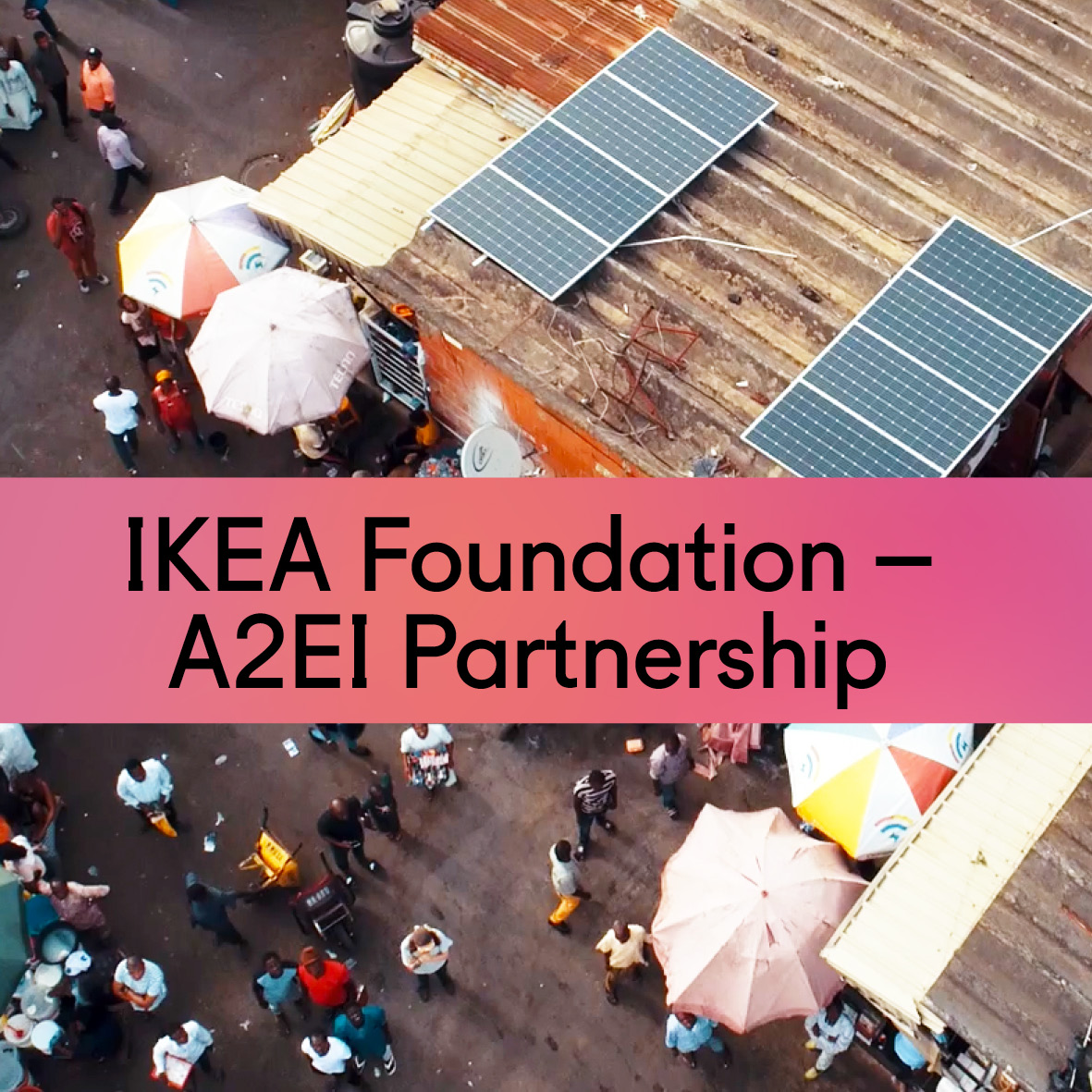6 April 2021: Unlocking solar energy to power farms and businesses in Africa.
A new Access to Energy Institute (A2EI) – IKEA Foundation partnership will help people in Africa power their livelihoods and earn a decent income through solar energy.
About 80% of households in rural Africa still live without access to electricity. In recent years, more people have been able to buy small solar home systems. But solar systems large enough to power computers, fridges and agricultural equipment—such as water pumps and mills—are still not readily available. These appliances could help farmers and business owners become more productive, increase their incomes and make sure people in their communities have enough to eat.
Sharing research and knowledge
While there are solar-powered solutions on the market in Africa, it’s not always clear which are most appropriate and how they can be scaled up. Current solar systems and appliances in the market are still too expensive for end-users and there’s a lack of established distribution channels. They are often built for consumptive use rather than productive use that can improve livelihoods, education and healthcare for the communities using it. Enterprises in the solar off-grid sector tend to develop smaller systems that need less finance and costly research and development. Any research private enterprises conduct is carefully shielded from competitors.
The partnership aims to bridge that gap and make data available to everyone in the sector. As a not-for-profit institute with a focus on collaboration, A2EI works without the constraints of profit-orientation and competition. This allows them to gather large-scale data on solar appliances and build up an open-source knowledge platform.
Solar Killed the Generator Star
A2EI works on various different projects to support the sustainable energy sector - through the Solar Killed the Generator Star project in Nigeria, A2EI aims to replace small-scale fuel generators with solar generators. There currently more than 20 million generators in the country, emitting more than 50 million tons of CO2 per year.
A2EI teams in Nigeria, Tanzania and Germany have gathered extensive data and engineered a robust and affordable solar generator large enough to power businesses and replace diesel generators. Certified technicians and local distributors partnering with A2EI are distributing, installing and maintaining these generators.
Smart meters help decision-making
In a second project, A2EI focuses agricultural machines. It conducts open-source research on and develops new solar-powered agricultural appliances. A third project concentrates on designing and installing remotely monitored meters and smart sensors to gather large-scale data. This enables the renewable energy sector to make informed decisions and develop affordable, sustainable and reliable solar solutions.
“A2EI is becoming the ‘go-to’ institute for the solar sector to bring open-source innovative, affordable and scalable solar solutions to the market,” says Jolanda van Ginkel, Programme Manager, Renewable Energy at the IKEA Foundation. “We are supporting their efforts because we want to enable small business owners and smallholder farmers in Africa to improve their income and afford a better life, while reducing and avoiding greenhouse gas emissions that cause climate change.”






















